Dell Technologies doesn’t know where AI is headed – but it might be the honesty its partners need
Backed by a strong infrastructure and services portfolio, Dell Technologies aims to enable enterprise AI advancements as fast as they're discovered

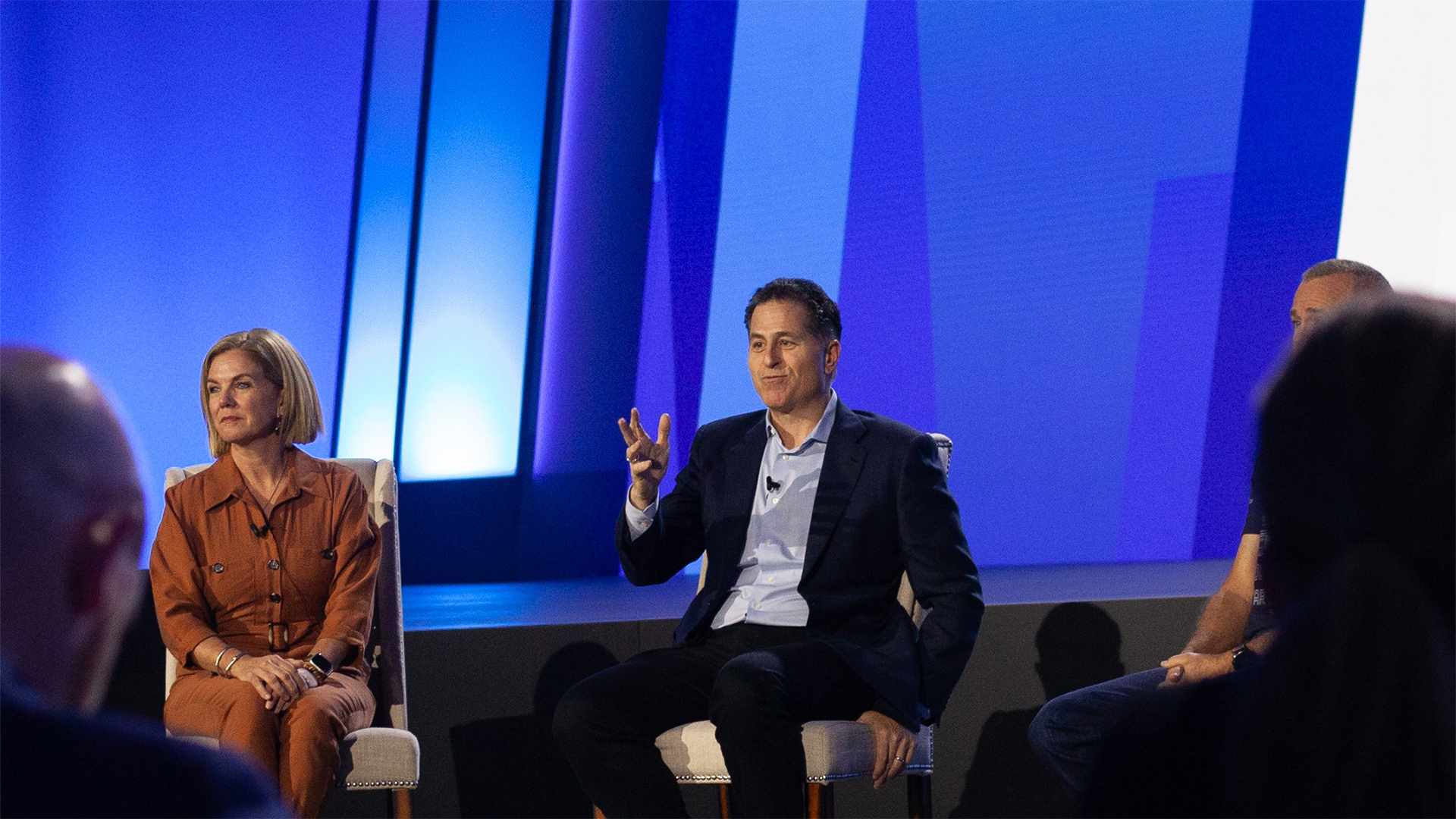
As Dell Technologies World 2024 comes to a close at the Venetian Resort, Las Vegas, partners and customers will be walking away with the word “AI” ringing in their ears. This was always to be expected, given the continued interest in the technology and significant developments in the field since last year’s event.
Over the four-day event, Dell Technologies pitched itself as an end-to-end AI enabler for its partners and customers, focused on empowering them to create their own ‘AI factories’.
This end-to-end, comprehensive deployment platform for AI provides customers with the infrastructure, data storage, and models necessary for enterprise AI deployment, leaning on Dell Technologies’ own infrastructure and services as well as Nvidia hardware and software.
“It’s your data center for the future, built and designed from the ground up, with an AI-first mindset,” says Michael Dell, founder and CEO at Dell Technologies.
Enthusiasm aside, one would be forgiven for entering day-two of the conference feeling a little frustrated with the lack of detail. This was less a list of announcements and more of a soapbox for Michael Dell and friends to rave about AI.
Dell Apex, the company’s flagship anything as a service (XaaS) offering, was also largely absent in either of the keynotes, even though it is linked to Dell’s AI Factory which is available through a Dell Apex subscription. Apex has also been expanded to include new support for digital assistants and AIOps.
In choosing to spend the keynotes focused on AI potential and demand, coupled with regular reminders from the likes of Dell himself that the firm is not in the business of making predictions on precisely what AI will look like in a few years’ time, Dell Technologies has doubled down on a strategic rather than technology-driven approach to AI.
Sign up today and you will receive a free copy of our Future Focus 2025 report - the leading guidance on AI, cybersecurity and other IT challenges as per 700+ senior executives
Dell Technologies eyes greater flexibility
Throughout the event, Dell Technologies executives such as global CTO John Roese argued that strategy and infrastructure, not individual pieces of technology, are what organizations must get right to adopt AI. This is the guiding principle for the company as it looks to enable AI across the broadest possible range of use cases.
While the firm might not know precisely what AI will look like in just a few years, its familiarity with customer needs and the routes to return on investments with AI allow it to anticipate the most common ways in which generative AI will be delivered.
This might not be what partners were looking to hear at the event, but it may just be what they needed to hear.
A prime example of this can be found in Dell’s multi-tiered approach to AI hardware, which runs from kit to support small-scale AI at the edge to new server racks that lay the groundwork for trillion-parameter models.
On the one hand, you have the PowerEdge XE9680L, the firm’s new rack server optimized for demanding AI workloads packed with direct-liquid-cooled (DLC) Nvidia Grace Blackwell generation chips and capable of 400Gbits/sec throughput.
On the other, Dell Technologies says its customers are more likely to use open source models for better efficiency at the edge and lower latencies, which the company is meeting through its open ecosystem tie up with Hugging Face and new line of NPU-equipped laptops in its XPS, Latitude, and Inspiron ranges.
Flexibility is key, with Dell Technologies arguing that customers are better off bringing AI right to their data. This links to the firm’s new focus on generative AI inference over AI training or fine-tuning, which it argues can deliver outputs with lower latency and reduced costs compared to training.
“Most enterprises will not train their own large language models (LLMs),” says chief operating officer Jeff Clarke. “They will use open source models like Llama 3, Mistral, and others to utilize generative AI in businesses.”
The fast-changing nature of AI
AI architecture has already evolved away from the architectures that headlined conferences last year and Dell Technologies is striving to keep up. Roese tells ITPro that one of the most radical changes has been the widespread adoption of retrieval-augmented generation (RAG).
This is a framework for AI in which a vectorized knowledge repository is connected to AI models, so that each output is informed by both the user input and organization-specific information for more relevant results.
Though the technique is now becoming well-known and is a core part of Dell’s AI Factory approach, Roese points out that he himself only found out about it a year and one week ago in a conversation with Douwe Kiela, co-founder of Contextual AI and a co-author of the original paper on RAG.
RAG has allowed models to be used more or less off-the-shelf, with businesses grounding outputs in their own data at the inference stage rather than through excessive AI training or fine-tuning.
RELATED WHITEPAPER

“That became the mainstream thinking and today you wouldn't dream of building an enterprise architecture that wasn't using RAG,” Roese tells ITPro. “But that was one year and one week ago, that was not 10 years ago.”
The rise of RAG isn’t the only fundamental shift in the AI field over the past 12 months. In a panel discussion, Roese argues the rate of change across the sector is such that global AI legislation will be undeliverable if governments connect laws to specific technologies.
Matt Baker, SVP of AI strategy at Dell Technologies, noted that Dell has advanced rapidly since last year’s Project Helix, its collaboration with Nvidia aimed at helping customers fine-tune or train LLMs using proprietary data.
“So Project Helix was to get a platform out that could fuel experimentation, so people were talking about are we going to train models, are we going to fine-tune models, are we going to inference, etc,” Baker says.
“That was a platform that was well-suited to get started with. But over the last year we've learned a ton and we've learned that for the most part, [more than] 80% of the applications that we see in a private environment at an enterprise, organization, or a government tend to be these RAG solutions.”
Dell Technologies is drinking its own champagne
Customers could be worried about Dell Technologies admitting that it’s been surprised by the direction AI has taken since this time last year, but the company is using that as a selling point for its ‘Validated Designs’ catalog for AI.
Its argument is that while everyone has been blindsided by AI advances, it has learned lessons from them that it can pass onto customers through its service layer.
Jeff Boudreau, chief AI officer at Dell Technologies, explained how his role was created in September 2023 as part of a move by Dell and Clarke to “make a statement and symbolism” by setting up an executive who could oversee a refinement of Dell Technologies’ data and governance strategies and teach its 130,000 employees to use AI effectively.
As part of this new approach, Dell Technologies has adopted a four-pronged framework for AI: “AI in, on, for, and with”:
- ‘AI in’ is about how Dell can embed offers in AI to make them better for customers.
- ‘AI on’ relates to Dell’s goal to have the right infrastructure in place to support AI, from devices to the data center.
- ‘AI for’ is Dell’s internal use of AI for improvements in areas such as its sales and business experiences.
- ‘AI with’ refers to the open ecosystem of partners that Dell has put at the center of its AI offerings.
The key here is that Dell sees itself as the first case study for the AI solutions it offers its customers – the phrase “drinking our own champagne” was used throughout the event, to encapsulate the belief that Dell needs to demonstrate the benefits of AI by example.
“It's a sharing of knowledge, the good, the bad, the ugly, everything we've learned inside as Dell being our ‘customer zero’,” Baker says.
Baker adds that from this experimental basis, Dell Technologies is “in a unique position” to realize the goals of its partners and customers by leveraging its services and infrastructure portfolio.
This echoed across its new announcements, including Dell Generative AI Solution for Digital Assistants, which accelerates the implementation of digital assistants rooted in Dell and Nvidia solutions. Throughout talks at the conference, executives also predicted that businesses will
While Roese’s predictions that we’ll soon be seeing “billions” of AI agents deployed worldwide might seem out there, it’s also clear that there’s enterprise demand for lightweight, customized AI assistants and tools. We see this with Google Cloud, which unveiled its Vertex AI Agents at Google Cloud Next 2024, as well as with Microsoft’s Copilot+ PCs and Microsoft Copilot.
In its pragmatic approach to AI adoption, Dell Technologies is asking customers to trust in its ability to meet their needs and help them deploy cutting-edge AI as the technology evolves.
While its genuine uncertainty over where AI is headed in the near future could pour cold water on those who hoped to have a specific roadmap laid out at this year’s event, Dell Technologies will also have reassured customers that come what may, it will have laid the groundwork to make the most of it.

Rory Bathgate is Features and Multimedia Editor at ITPro, overseeing all in-depth content and case studies. He can also be found co-hosting the ITPro Podcast with Jane McCallion, swapping a keyboard for a microphone to discuss the latest learnings with thought leaders from across the tech sector.
In his free time, Rory enjoys photography, video editing, and good science fiction. After graduating from the University of Kent with a BA in English and American Literature, Rory undertook an MA in Eighteenth-Century Studies at King’s College London. He joined ITPro in 2022 as a graduate, following four years in student journalism. You can contact Rory at rory.bathgate@futurenet.com or on LinkedIn.
-
 AWS just quietly increased EC2 Capacity Block prices – here's what you need to know
AWS just quietly increased EC2 Capacity Block prices – here's what you need to knowNews The AWS price increases mean booking GPU capacity in advance just got more expensive
-
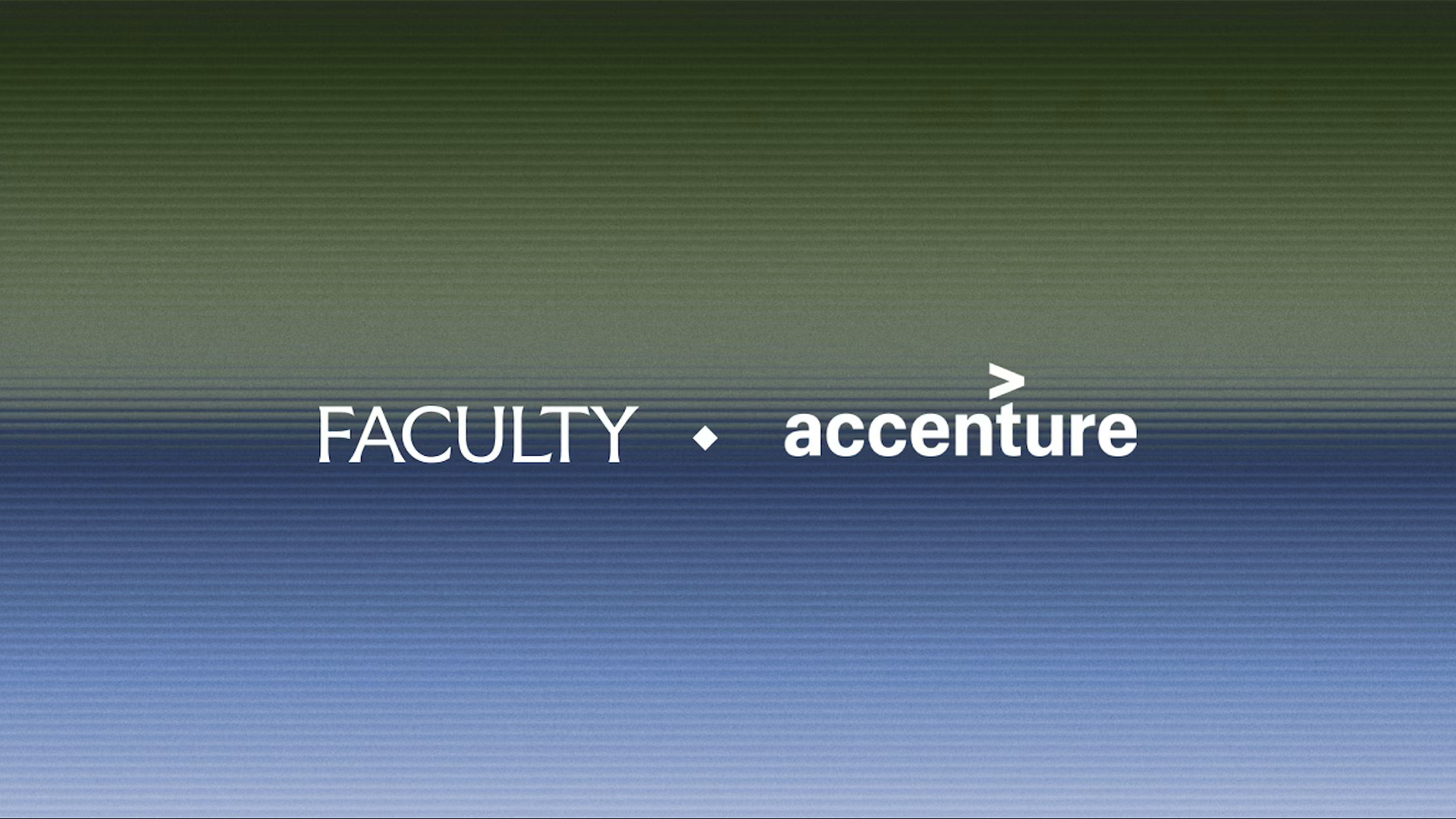 Accenture acquires Faculty, poaches CEO in bid to drive client AI adoption
Accenture acquires Faculty, poaches CEO in bid to drive client AI adoptionNews The Faculty acquisition will help Accenture streamline AI adoption processes
-
 Dell Technologies doubles down on AI with SC25 announcements
Dell Technologies doubles down on AI with SC25 announcementsAI Factories, networking, storage and more get an update, while the company deepens its relationship with Nvidia
-
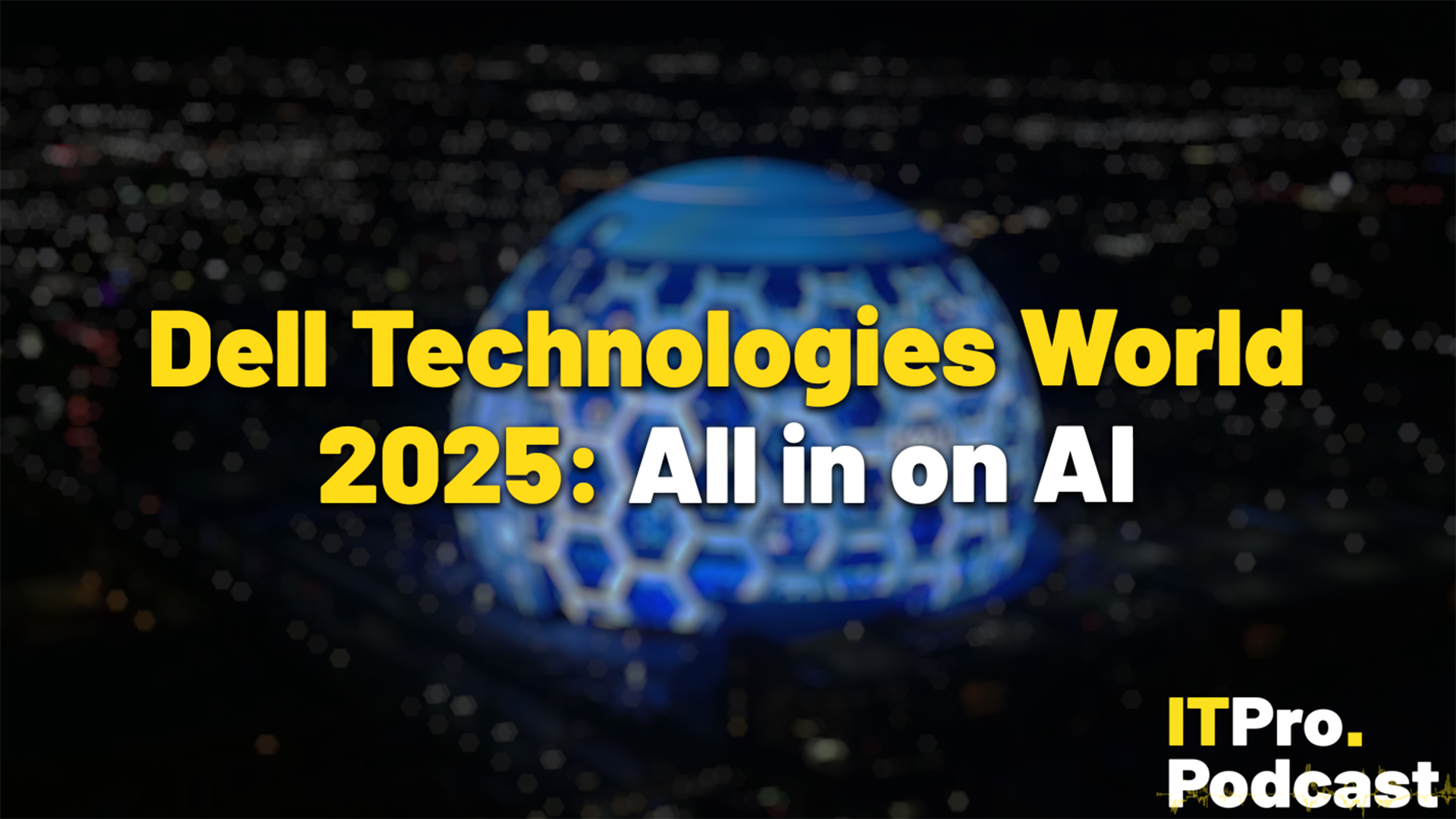 Dell Technologies World 2025: All in on AI
Dell Technologies World 2025: All in on AIITPro Podcast From the cloud to the edge, enterprise architecture for AI must be carefully considered
-
 Michael Dell talks up the power of human and AI collaboration – but not everyone’s singing the same tune
Michael Dell talks up the power of human and AI collaboration – but not everyone’s singing the same tuneJPMorgan Chase head of technologies outlines plans for greater generative AI use at Dell Technologies World 2025
-
 New Dell AI Factory partners debuted at Dell Technologies World 2025
New Dell AI Factory partners debuted at Dell Technologies World 2025News Dell Technologies expands its ecosystem with Mistral, Intel and Red Hat, and reveals AMD updates
-
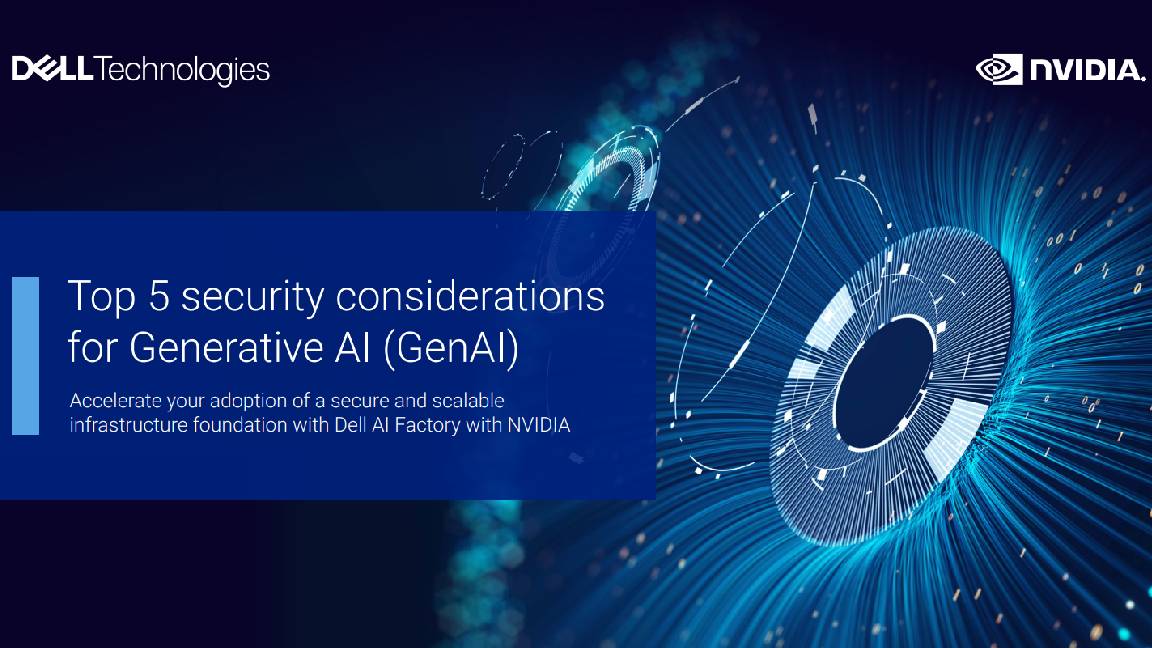 Top five security considerations for Generative AI (Gen AI)
Top five security considerations for Generative AI (Gen AI)whitepaper Protection across AI attack vectors
-
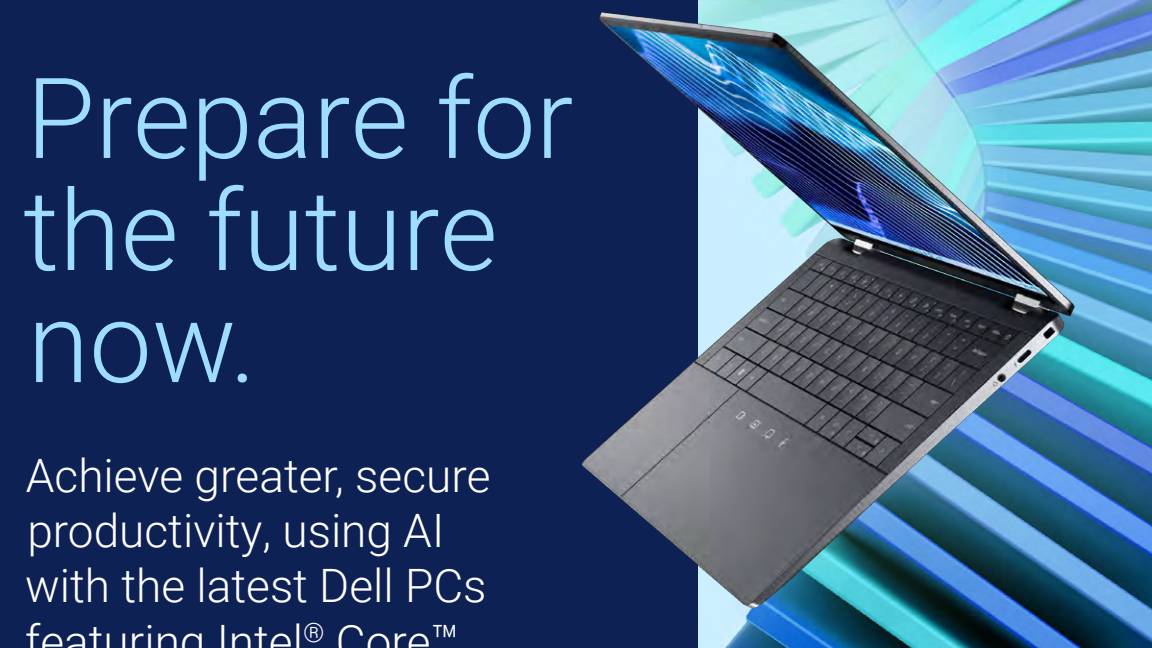 Prepare for the future now. Achieve greater, secure productivity, using AI with the latest Dell PCs powered by Intel® Core™ Ultra and Copilot
Prepare for the future now. Achieve greater, secure productivity, using AI with the latest Dell PCs powered by Intel® Core™ Ultra and Copilotwhitepaper Protection across AI attack vectors
-
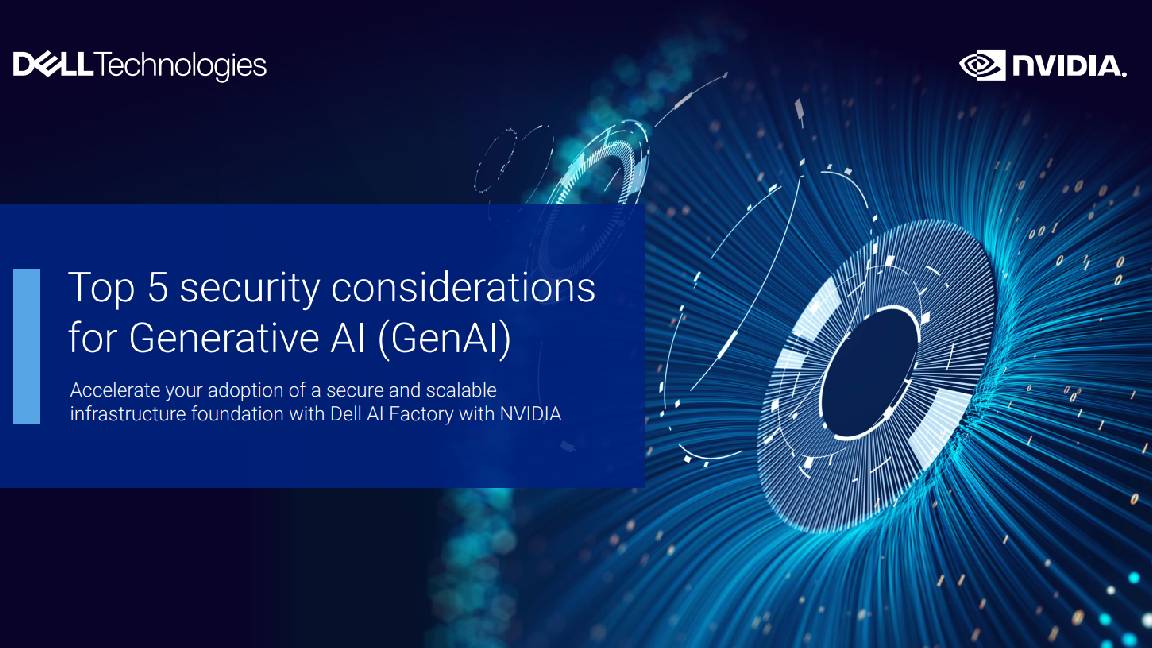 Top five security considerations for generative AI (Gen AI)
Top five security considerations for generative AI (Gen AI)whitepaper Accelerate your adoption of a secure and scalable infrastructure foundation with Dell AI Factory with NVIDIA
-
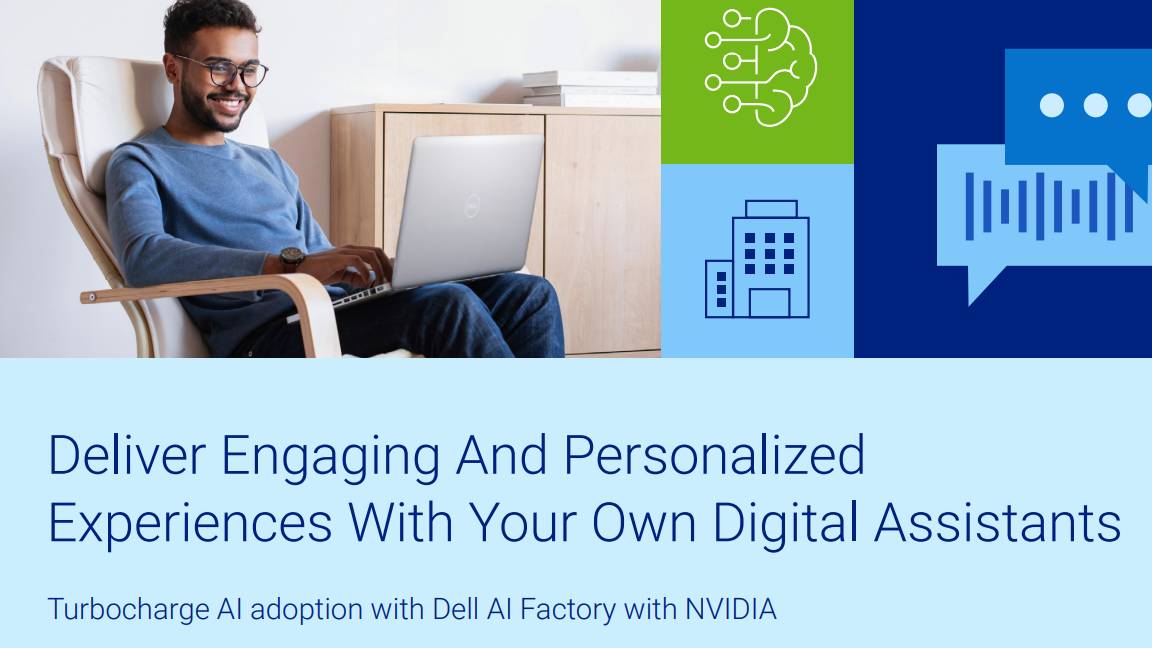 Deliver engaging and personalized experiences with your own digital assistants
Deliver engaging and personalized experiences with your own digital assistantswhitepaper Protection across AI attack vectors